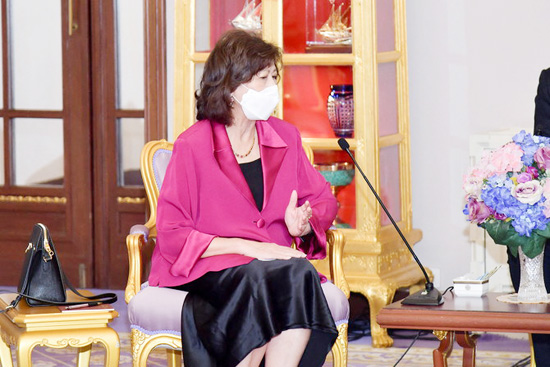Arab News
Noeleen Heyzer, the UN’s special envoy for Myanmar, last week sparked uproar when she made a comment suggesting that the country’s pro-democracy protesters should aim for a power-sharing deal with the junta that overthrew the civilian government last February. Such an uproar is entirely justified. Reasonable compromise is a pragmatic and grown-up response to any conflict, so reasonable people should be expected to meet their opponents halfway. Except, of course, it is rarely the case that both sides in a dispute like Myanmar’s civil war are “reasonable.” And that kind of logic imposes demands on those who are justified in their fight not to compromise with people whose aims and actions are unjustifiable by any moral standard.
The military of Myanmar took over the government of the country early last year, immediately after a landslide democratic victory for the National League for Democracy party of Aung San Suu Kyi. It then proceeded to crack down on initially peaceful protests against the coup with tactics previously deployed in the genocide against the Rohingya: Arbitrary detentions and extrajudicial murders en masse, the use of sexual violence as a tactic of war, and the use of starvation sieges to subdue civilian populations. The suggestion that the people on the ground in Myanmar who are fighting for their democracy should compromise with those who have committed so many atrocities against them over the past 12 months is a non-starter. Such a proposal would once again leave the military leaders in power, immune to repercussions for their crimes, and would force ordinary citizens to effectively abandon their hopes of democracy, for which they have already sacrificed so much.
As representatives of those fighting for democracy on the ground in Myanmar have been quick to point out, this suggestion is not just morally indefensible, it actually puts them in a more difficult position. If the junta expects the pro-democracy protesters to compromise in this way, they can expect impunity for any of the tactics they are now using to crack down on the protests. This may mean that, if there was any kind of restraint on the tactics that the junta would use in this conflict, any such restraint would now be gone, as it seeks to gain the most advantageous position before getting to the negotiating table.
But more than that — and this is a point even the pro-democracy protesters have not yet raised — this kind of intervention puts the onus on the victims of this conflict to be “reasonable” and to “compromise.” And if such calls go unheeded, not least because they most definitely should not be heeded, then the protesters for democracy may be cast in the eyes of the international community as the “intransigent ones” and somehow at fault for the ongoing atrocities they are faced with.
The kind of careless comment made by the UN envoy straight up sets the scene for victim blaming the civilians in the civil war in Myanmar. It is therefore imperative that the rest of the international community echoes the stance of the protesters on the ground, swiftly and on the strongest terms, to prevent that kind of narrative taking root in the international presentation of the ongoing events. The good news, however, is that, at the time of writing, the pro-democracy movement appears to be slowly taking the ascendancy in this conflict. If the trend holds, the people of Myanmar may yet have a shot at establishing a true democracy in their country. But for the time being, they are still reliant on the support of the international community in their fight. The envoy has now rowed back on her initial comments, claiming that they were misunderstood. It is critical that such ill-judged interventions are kept to a minimum in the future and are swiftly and decisively redressed when they do occur.





